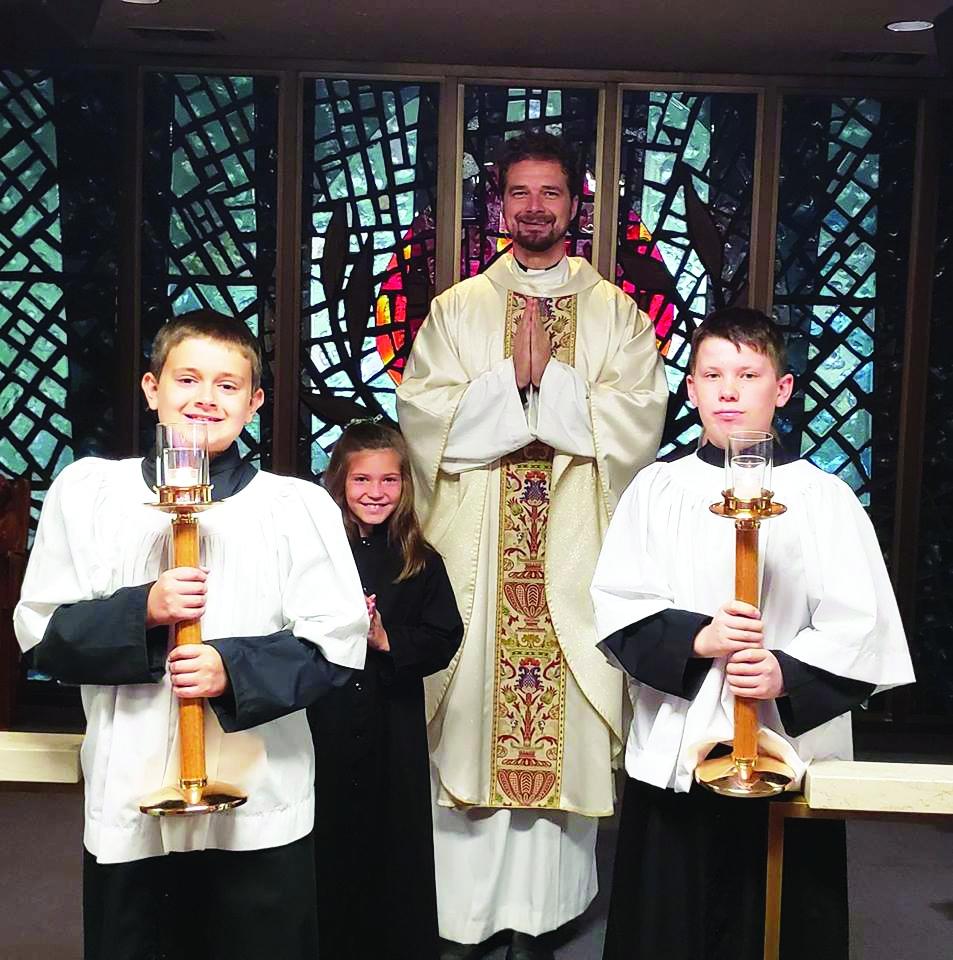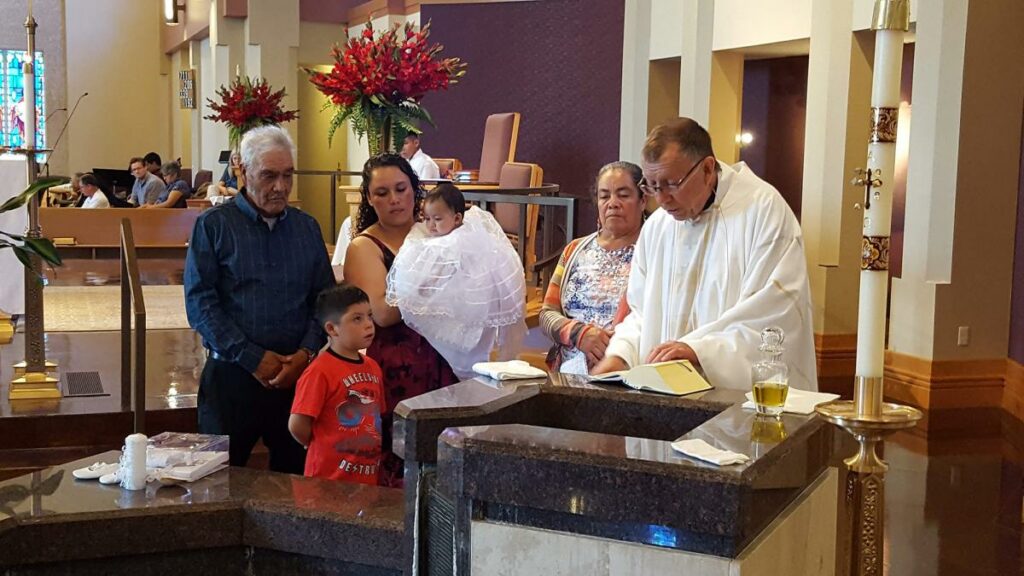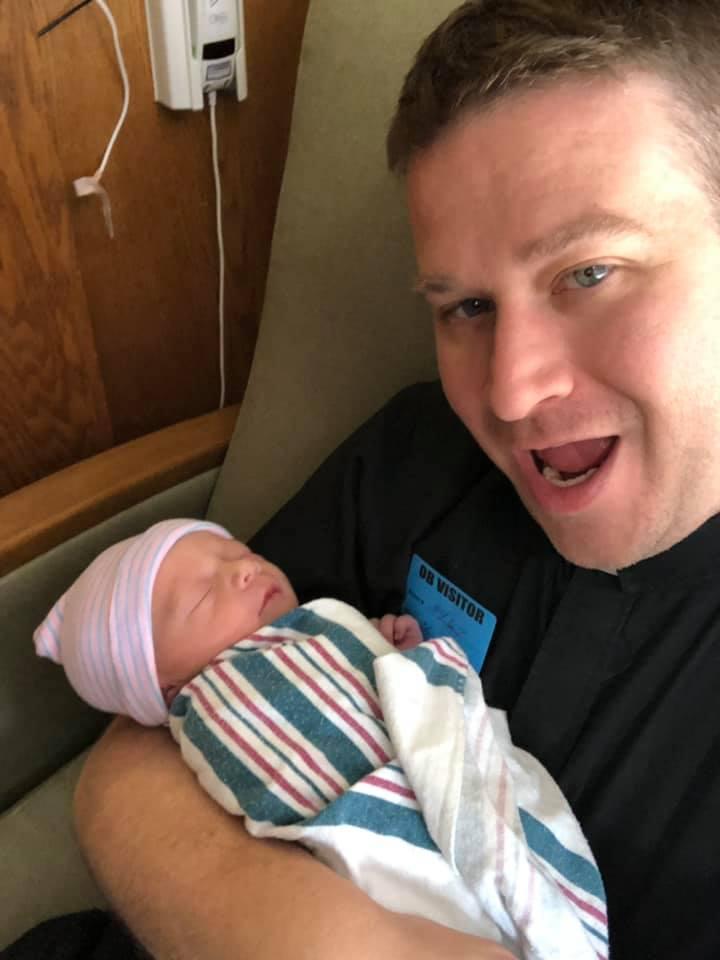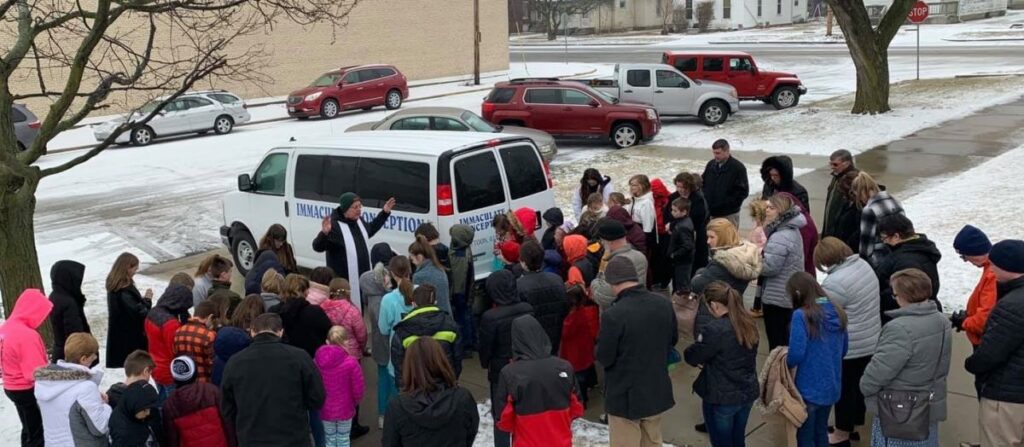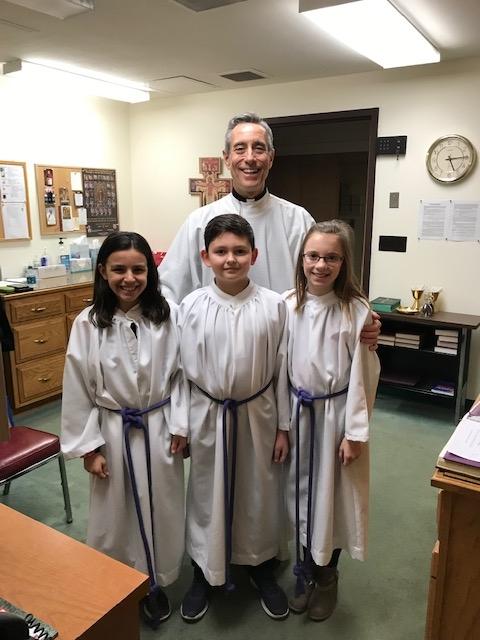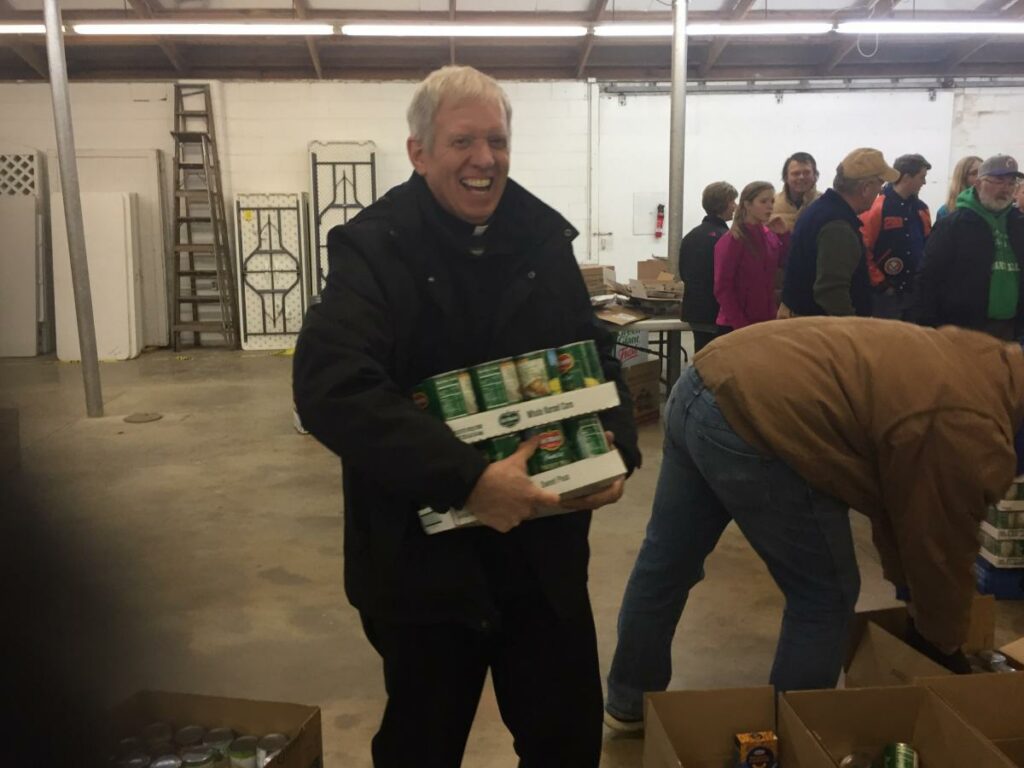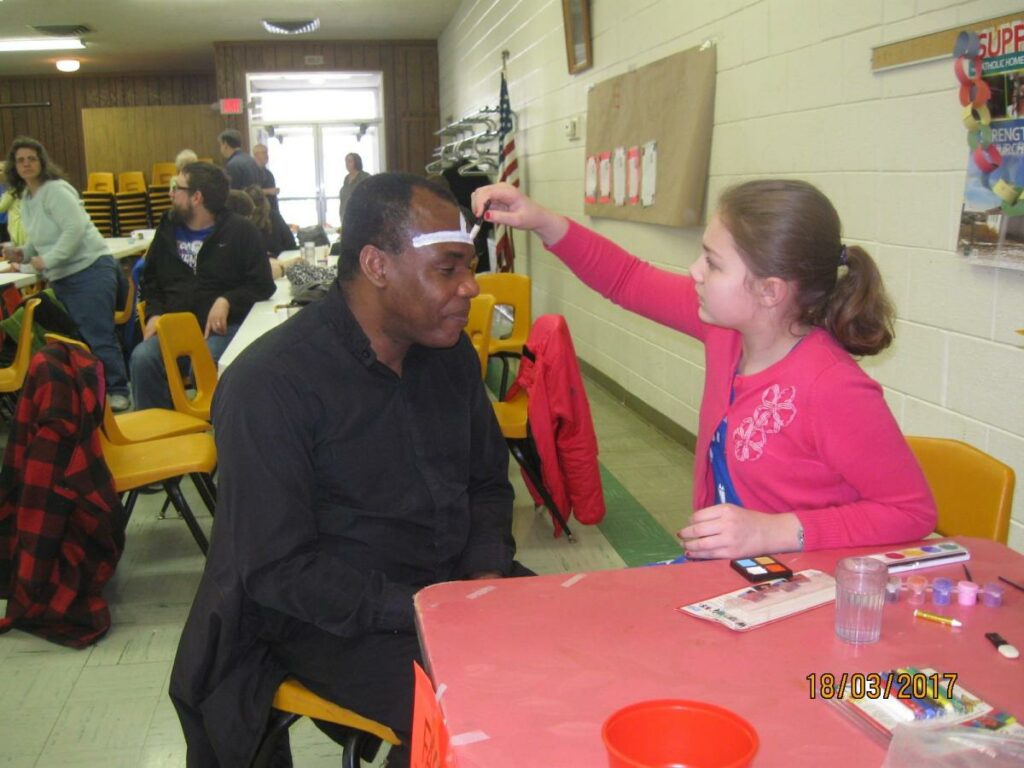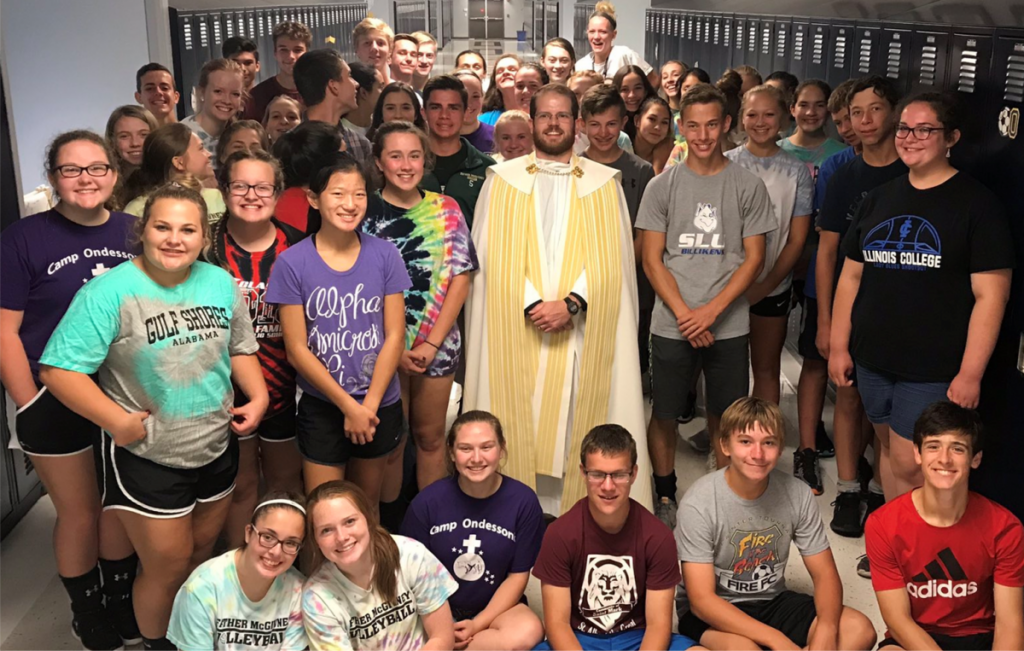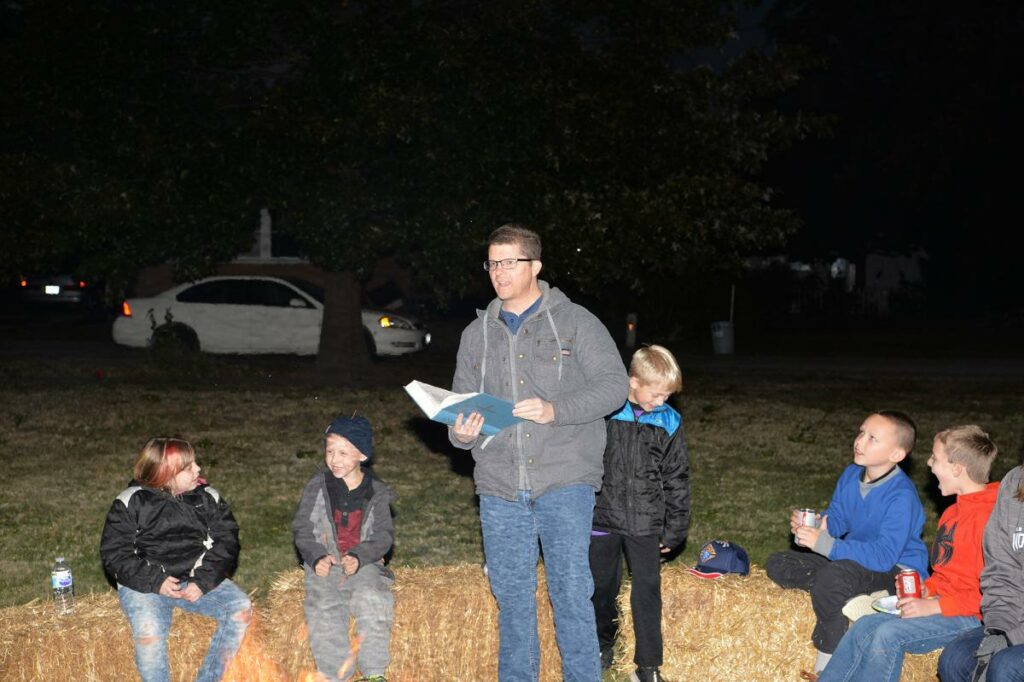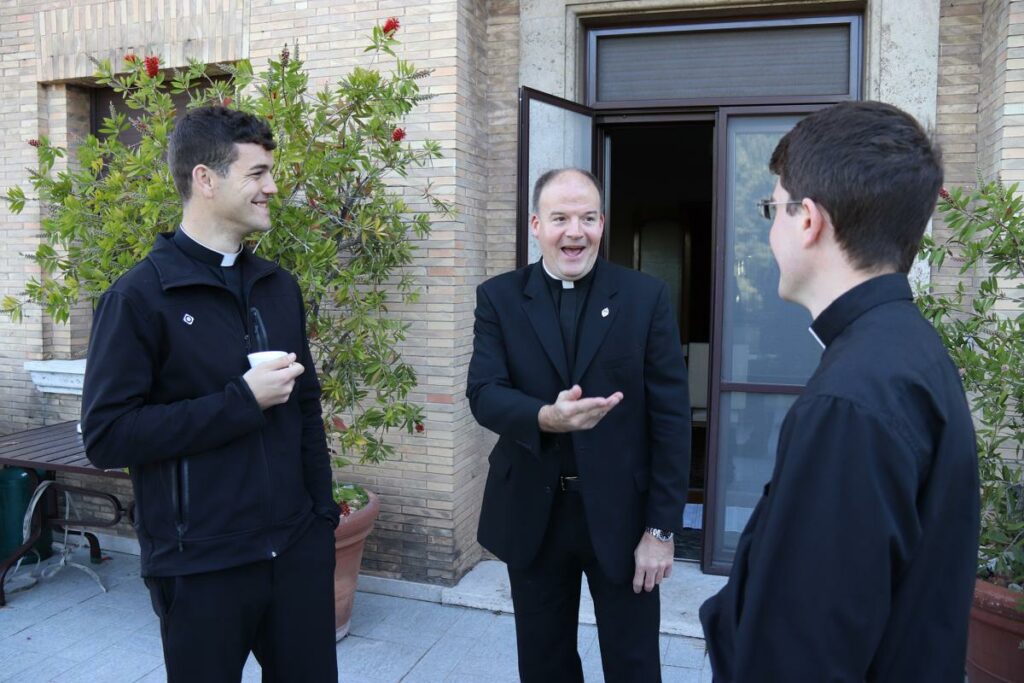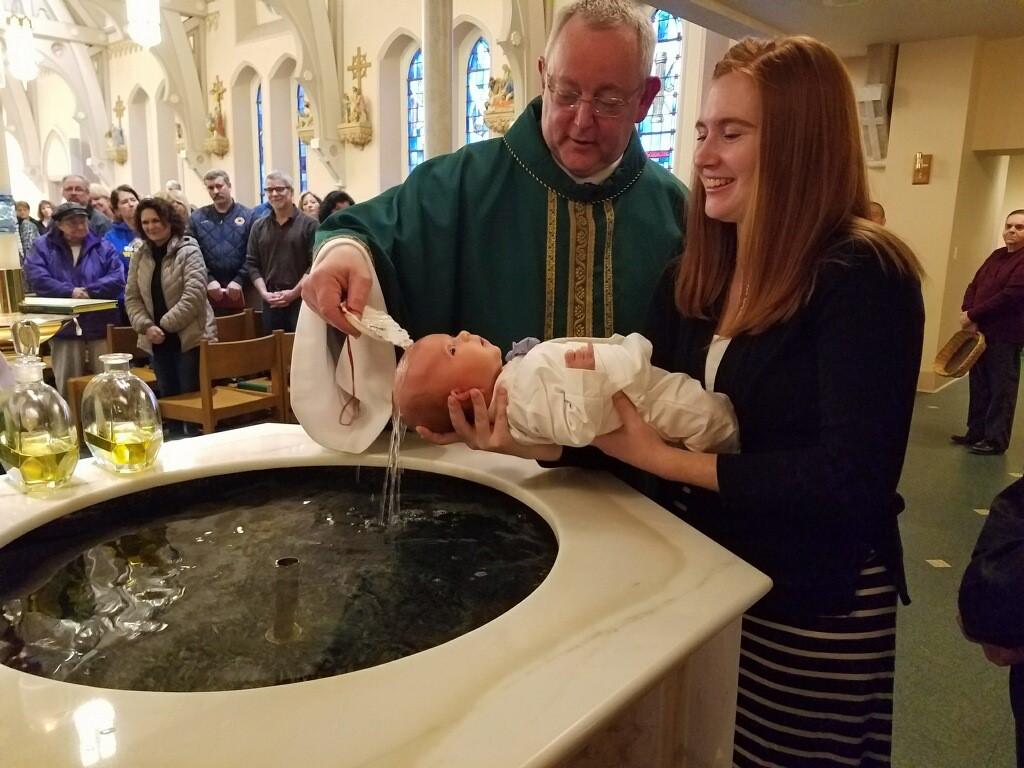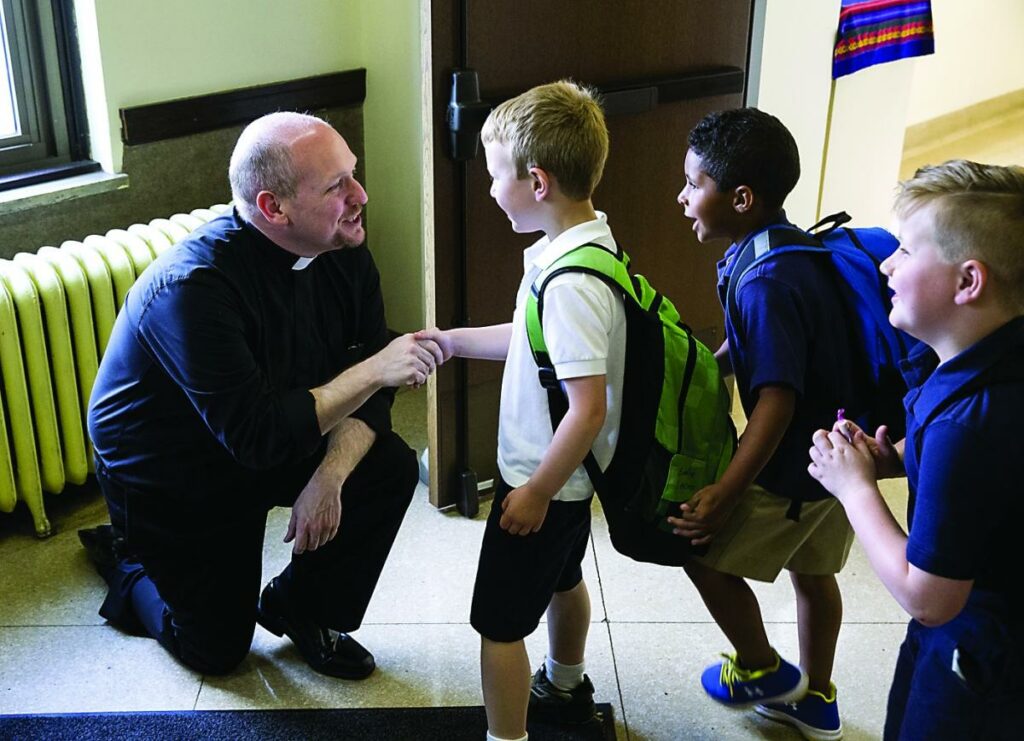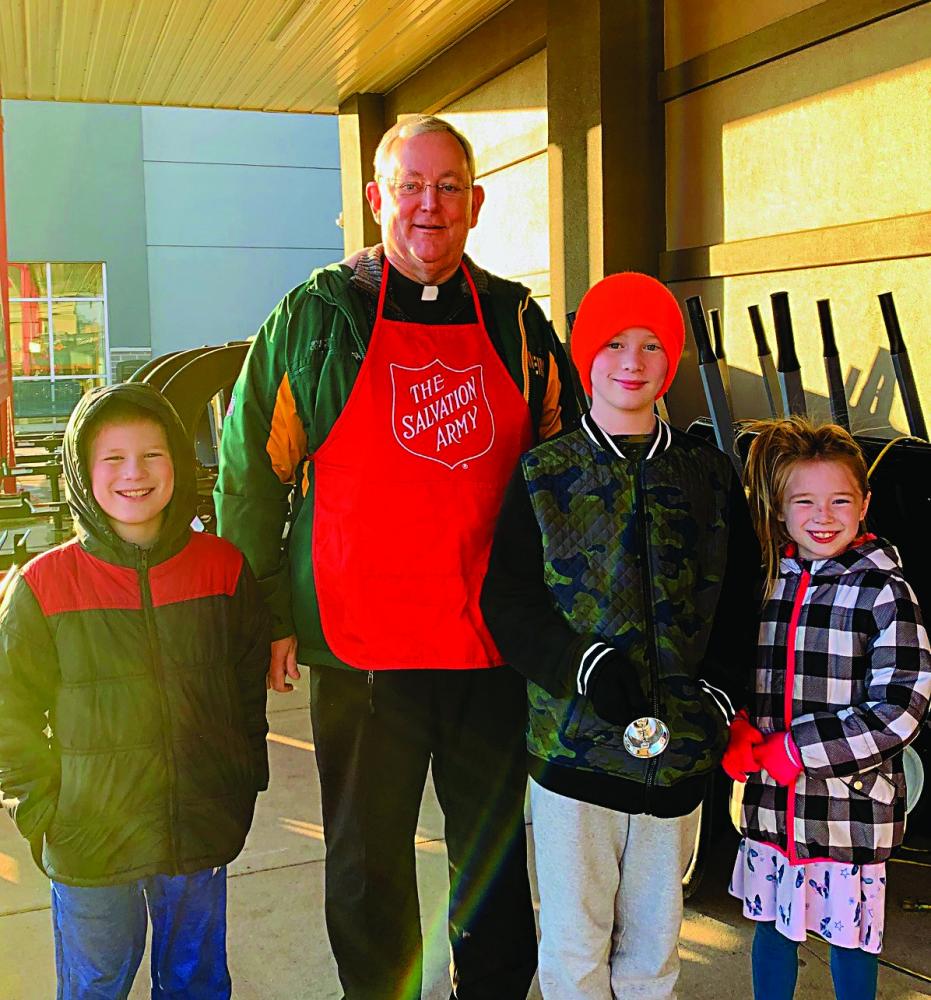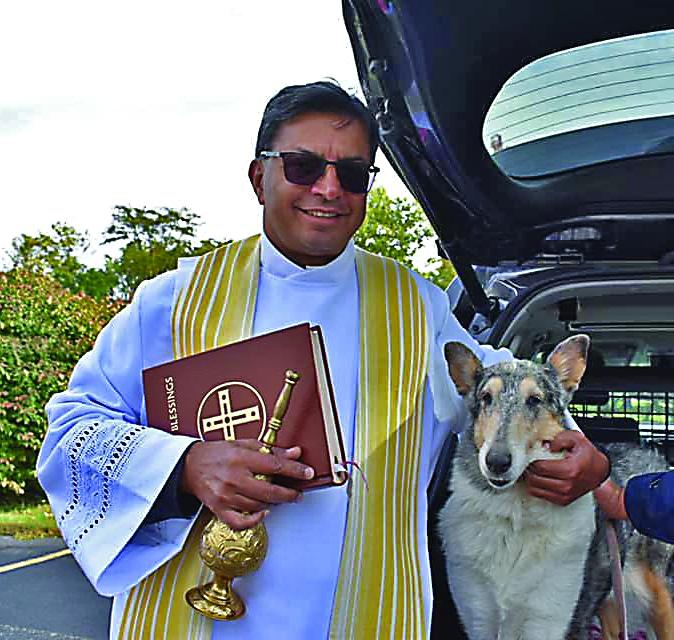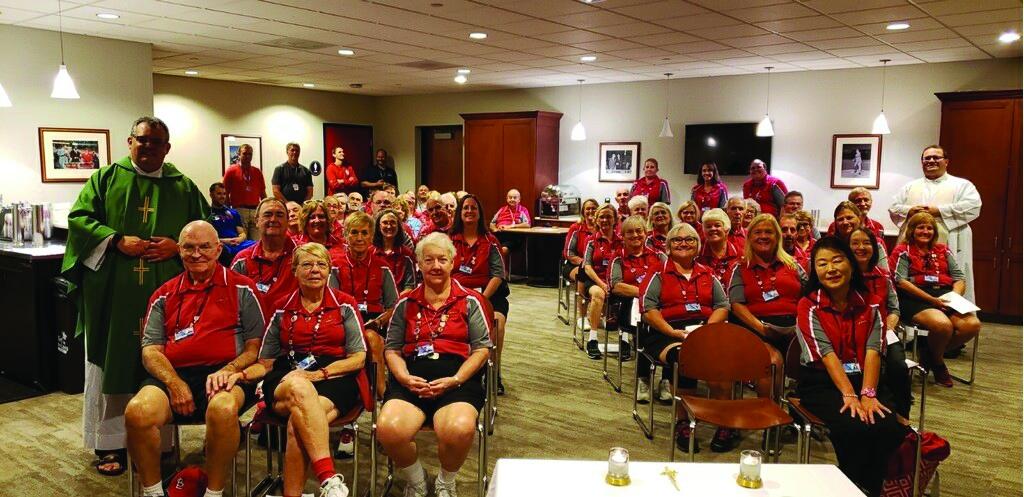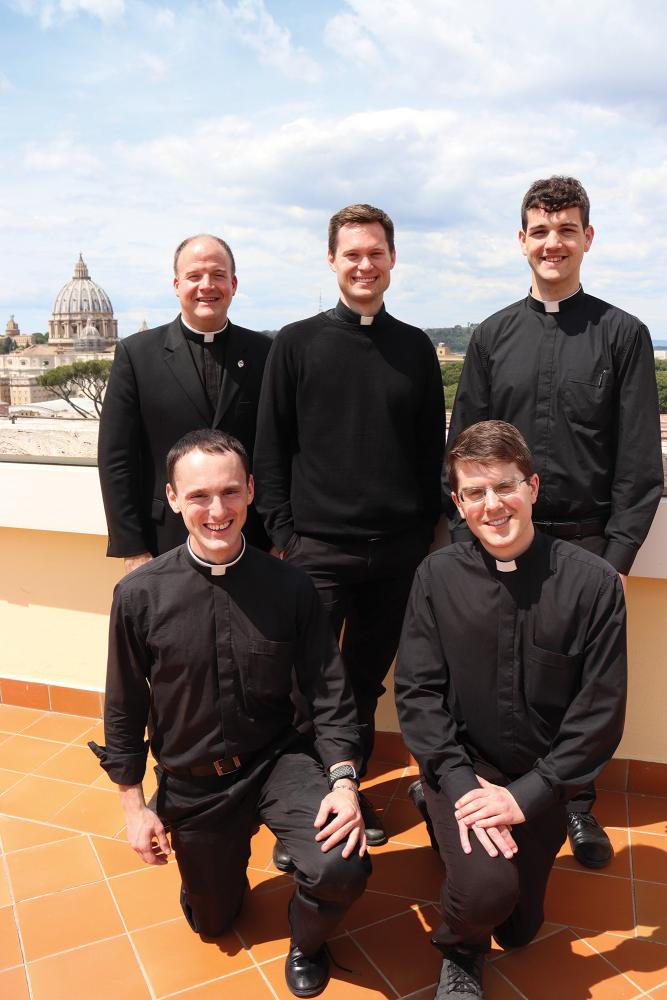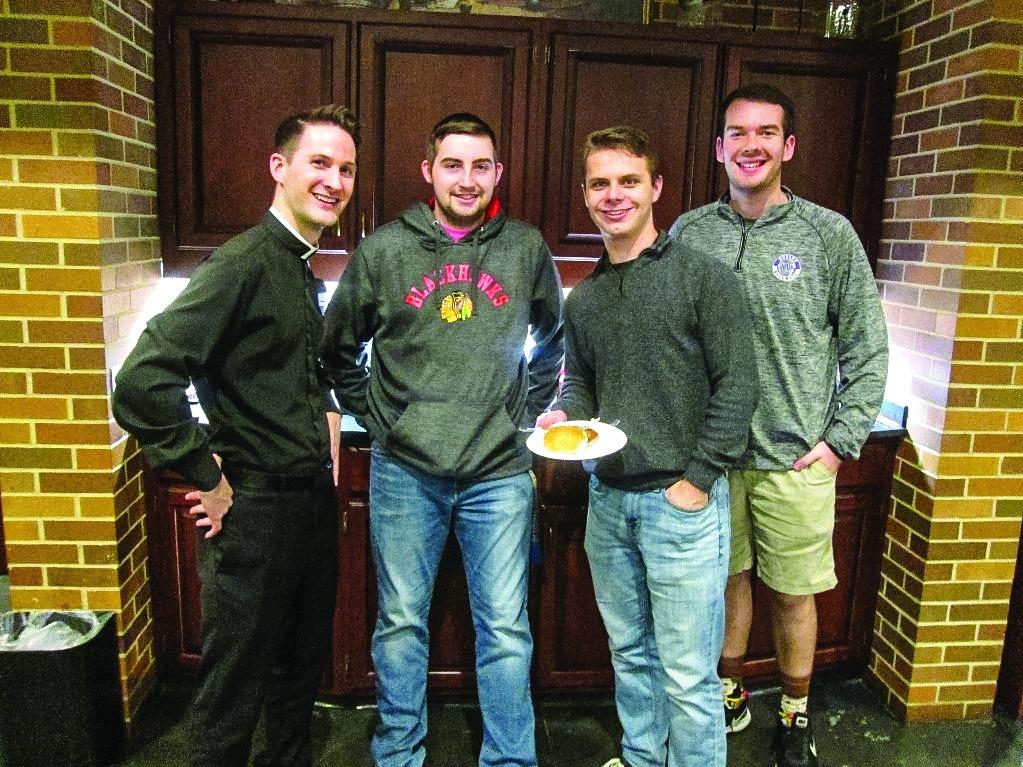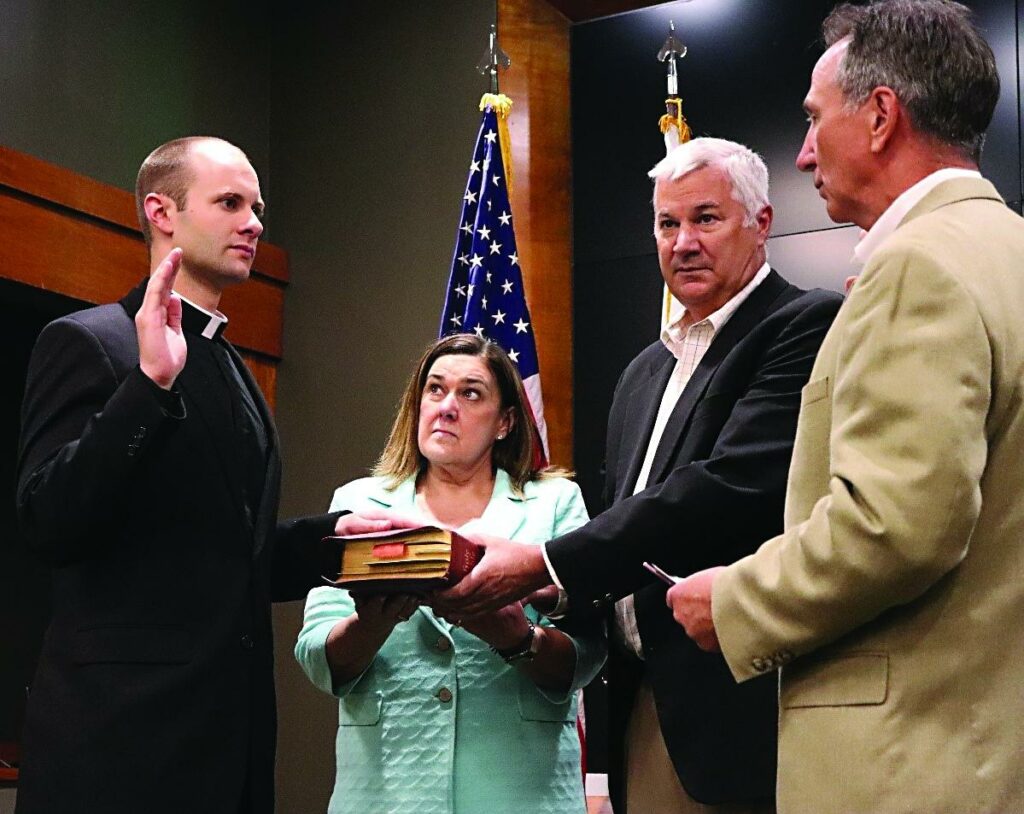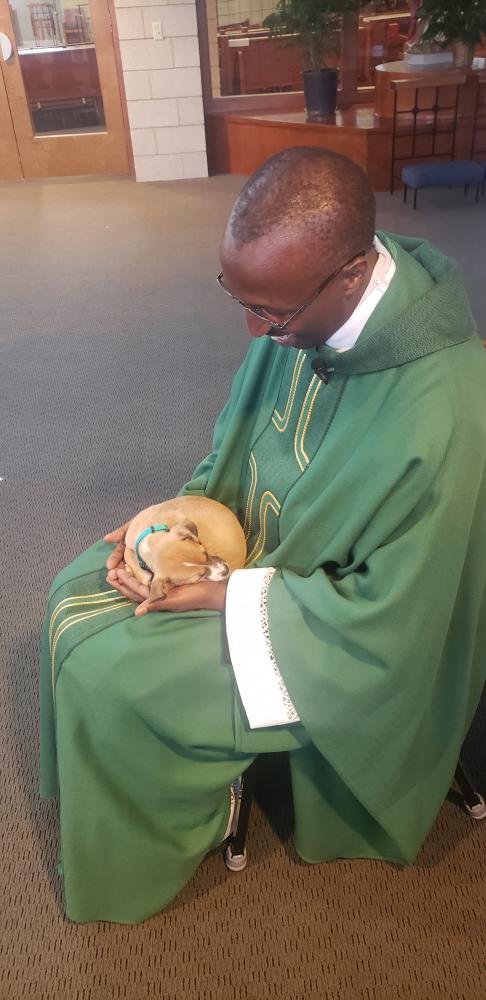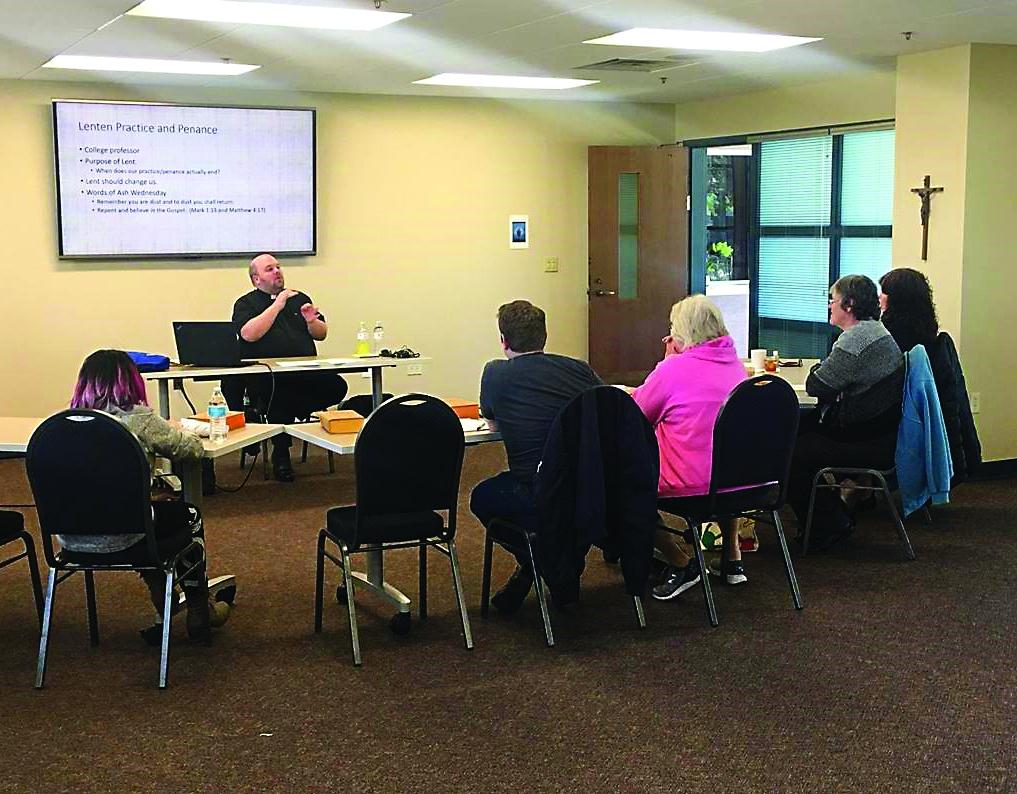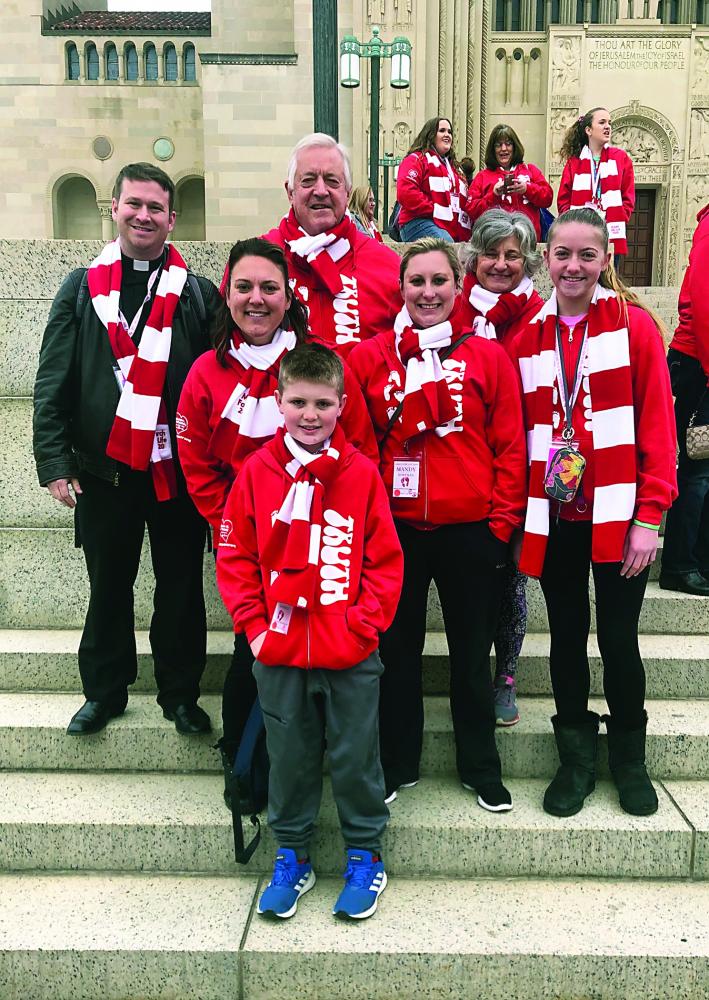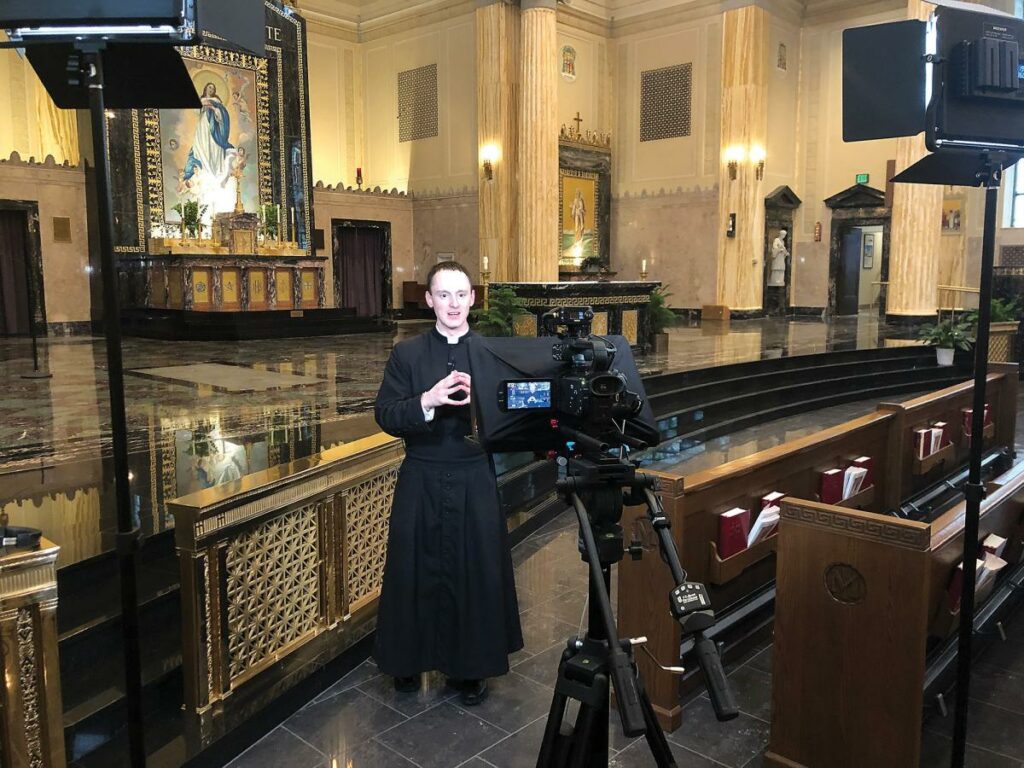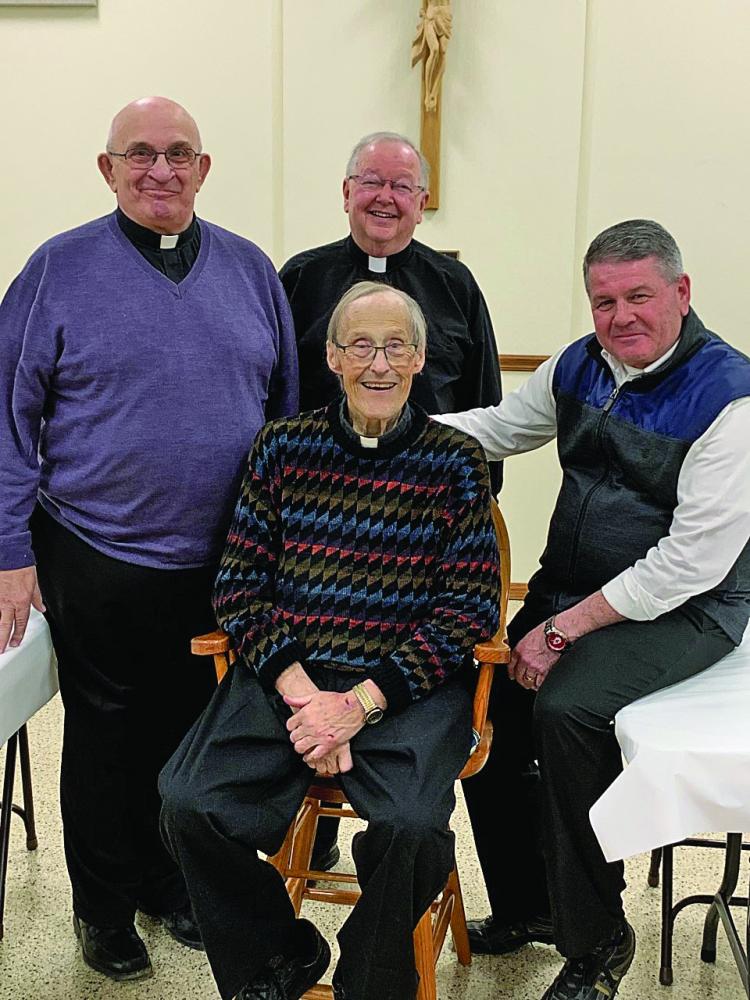
The Priesthood
A diocesan priest ordinarily serves the church within a well-defined area (a diocese). He serves the people as a parish priest, but may also be involved in other forms of ministry: teaching, chaplain in hospitals, prisons, campus ministry, etc.
A religious priest, on the other hand, is a member of a community which goes beyond the geographical limits of any diocese. A religious priest seeks to live a vowed life within a community of men for mutual support and accomplishment of some work. There is an emphasis in the community on shared ideals, prayer and commitment to Christ. Religious priests work in a wide variety of ministries.
Although diocesan priests make no vows like a religious priest, at ordination they freely make promises of celibacy and obedience to their bishop.
The Vocation
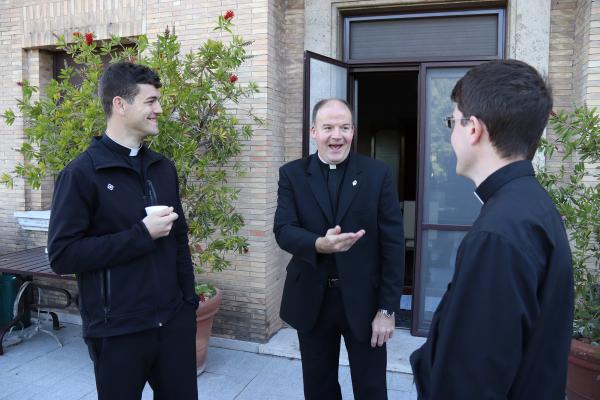
A vocation is “a calling.” Each individual has a vocation in life. Although each vocation is different, they are all an invitation by God to follow Him. He initiates this invitation, it is not from the world or ourselves.
Following God is not about a one-time experience. It is about developing a relationship with Christ over time. In the Gospels, Peter and Andrew, James and John left their nets and immediately followed Christ. While that is true, we must not forget that they had spent three years with Him. Even after spending that much time with Jesus, they still largely did not understand. The same is true for us today. God’s will becomes known to us over a period of time.
Keep in mind that it is important to learn to desire what God desires for you. Remaining true to this desire opens your heart to receive what God wants for you. Then, God himself will take care of you.
The Sacrament
Holy Orders is the sacrament through which the mission entrusted by Christ to his apostles continues to be exercised in the Church until the end of time: thus it is the sacrament of apostolic ministry. It includes three degrees: episcopate, presbyterate, and diaconate.
One sacrament, celebrated three times (episcopate, presbyterate, and diaconate) with successively higher sacramental effects. Every man in Holy Orders is either a deacon, priest or bishop.
Only men can be ordained in the Sacrament of Holy Orders. The reasons are set forth in Pope John Paul II’s apostolic letter Ordinatio Sacerdotalis. It concludes, “I declare that the Church has no authority whatsoever to confer priestly ordination on women and that this judgment is to be definitively held by all the Church’s faithful.”
Deacons, priests, and bishops are called by Christ, who told His apostles, Jn 15:16 “You did not choose Me, but I chose you and appointed you.” The apostles hastened after Jesus when He called, Mk 1:16, 2:13 “Follow Me.” No man on earth has a right to be ordained. Those who sense a call from God to Holy Orders humbly submit to Church authority.
The Sacrament of Holy Orders imparts a special indelible character, a mark that God can see, on the human soul. Like the Holy Eucharist itself, the character of Holy Orders ontologically transforms a man interiorly while leaving his outer appearance unchanged. That character remains on his soul for all eternity, identifying him as one of God’s ordained servants.
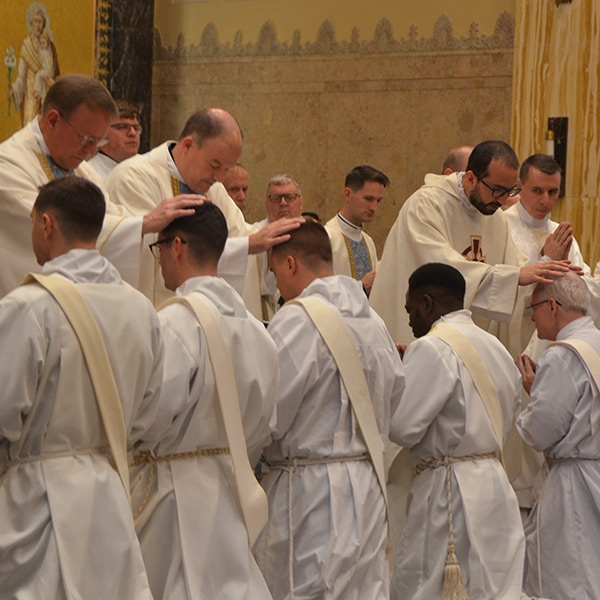
The Blessings of Priesthood
One of the biggest fears a man experiences when he first begins discerning the priesthood is that he won’t be able to have a family of his own. While it’s true that the Roman Catholic Church only ordains unmarried men, it’s not true that you’ll be “giving up family.” That’s because men who are ordained priests receive from the Lord the profound blessing of spiritual fatherhood. We call priests “Father” for a reason. They are our shepherds and guides. They are the ones who discipline us in the ways of the Lord and teach us how to live virtuous lives. They provide us with the nourishment of the Sacraments. It isn’t abstract theology to call your parish priest “Father.” It is an appropriate title for a man who has dedicated his life for the benefit of his flock.

